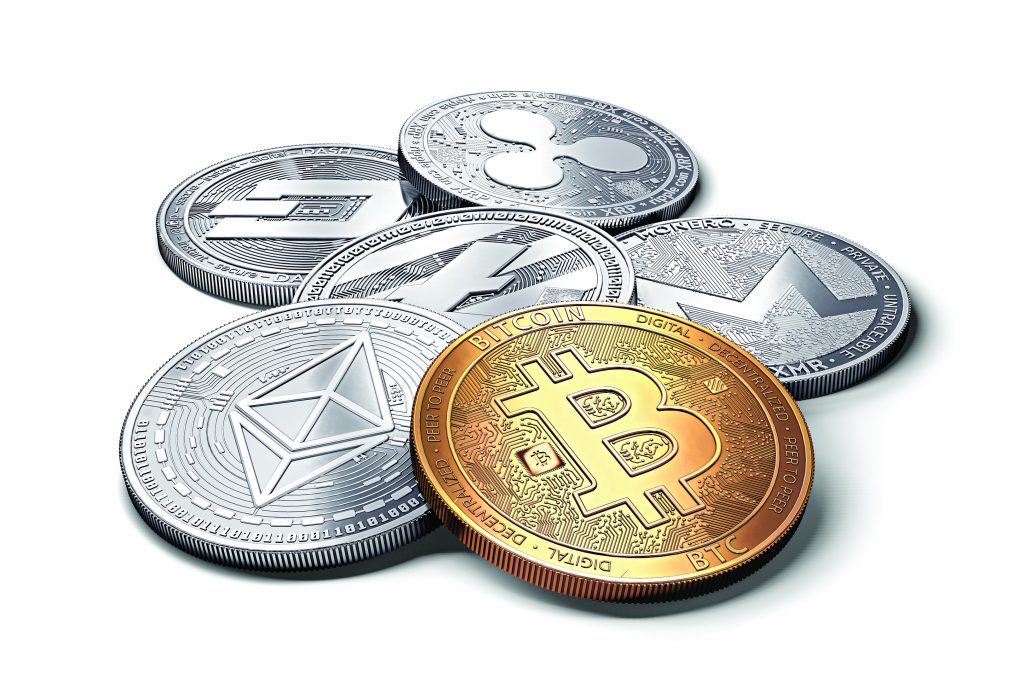The digital currency market plunged this year, losing more than 70% of its value. But the technology on which it is based – decentralization technology – is at an all-time high. Wherever you look, you will find blockchain and digital currency companies, countless developers and users and, notably, enormous sums that are being invested in this hot field.
The decade’s celebrations of cryptographic currencies are greeted with mixed feelings. Their rise to public consciousness is complete, and the name of the most popular virtual coin in the world can be heard on everyone’s lips (did someone say Bitcoin?), but the market is also characterized by the volatility of the prices of these currencies, which deters many from the new and fluctuating market and leaves inexperienced investors on the fence.
Those who do not deliberate or delay are those members of the digital coin community and entrepreneurs and developers of decentralized applications. As far as they’re concerned, nothing has changed, and the dwindling of the media buzz surround Bitcoin and its friends is actually positive: it provides the necessary quiet for creating the future economy. The elders of the tribe of technology will say that history simply repeats itself. In the early days of the internet, it was similarly unclear to the general public what one does with the technology, and many years passed until the internet became a necessary commodity in every home. From the business perspective, the internet revolution was also accompanied by a bubble, in which the investment and share value of high-tech companies were inflated, but after the big explosion, the technology giants, whose products we all use every day, rose up.

From information to value
If the internet revolution was the basis for our ability to transfer information freely and immediately between users, the decentralization revolution aspires to enable us to transfer value freely and immediately, without third party oversight. This is done using an innovative computing method, based on the decentralized record of information spread among all network users; an encrypted database can be stored on all computers connected to a particular network, updates can be made simultaneously and the possibility of editing or changing the database can be prevented.
For example, the database can contain a list of money transfers executed on the network and display to everyone the amount, the address of the sending computer, and the address of the recipient computer for every transfer.
“Blockchain,” as evidenced by its name, is a “chain of blocks”, in which each block contains a limited amount of data and each block is connected to the block before it by means of an unbreakable encryption mechanism. As opposed to the classic process of value transfer (such as bank transfers), in which there is a third party, such as the banking system, which validates the sender and recipient information and serves as a reliable intermediary between both sides, in the decentralized network, all users can participate in the information verification process and in network activity at any given moment.

However, such a verification system requires the use of a huge amount of energy. Meni Rosenfeld, chairman of the Israeli Bitcoin Association, points out the technological challenges facing the digital currency:
“The basic assumption that is required for the functioning of this system is that there will be no malicious element, which has at its disposal more computing power than the rest of the network, and at any given moment it could use it to carry out an attack and harm its normal operations. Is it really possible to prevent such a situation? The answer is yes, if we dedicate large amounts of resources to the ‘mining’ operations (harnessing the computer power of network peers – solving mathematical problems and being remunerated in Bitcoin), more than any attacker could achieve”, he notes.
“But even if we manage to fund it, this would be a considerable cost to the system, which would undercut Bitcoin’s gospel as a much more efficient system than the existing one. Nor is it at all clear where that kind of funding would come from when there is no body taking responsibility, and each participant would prefer that others take on the expense. Of course many ideas for solutions have arisen but they have yet to prove themselves.”
Respect The Blockchain. Fear It
On the operational and regulatory levels, there are also significant challenges posed by decentralization. The financial corporations, the regulatory institutions, and the tech giants fear a future in which they no longer hold exclusive control over the junction for information (including money) transfer but rather their true owners – each and every one of us – ultimately have the power.
So it may be no coincidence that the Bitcoin inventor launched his first document immediately following the peak of the subprime crisis in the United States in 2008, which brought about the collapse of the banks and finance companies, and the loss of trillions of dollars worldwide. In the subprime crisis, the wealth of the general public held by financial institutions was exposed to risk, while the Bitcoin currency aspires to decentralize the control of capital and protect its holders from external consequences.

In the meanwhile it seems that the huge corporations aren’t on the fence but rather have taken the approach of respecting and suspecting anything relating to blockchain and crypto; on the one hand, the technology and finance giants are creating huge blockchain development departments for private use, while at the same time, each is fearfully looking out for the day when they will no longer be needed, and the wallet application for digital currencies on our smartphone will replace all of our credit cards and bank accounts.
But the decentralization revolution won’t just stop at digital currency transfers between users. Eliminating the inspecting third party and returning control to the user is relevant to nearly every field and market in the world – from regulatory and government bodies (secure and distributed voting systems, for instance), to the enormous real estate market, in which the “tokenization” (issuing currencies against any property holdings), of buildings and investment possibilities and immediate trade in them occurs, as well as social networks, in which information wouldn’t be storied on the company servers, and in which they would have no control over the users.
These developments lead to complex questions regarding regulation. “How can we enjoy the innovation while minimizing cases of theft, fraud, and criminal use of currencies? How can the new decentralized technology interface with traditional systems of business and law?” Rosenfeld asks and raises another issue. Would compliance with regulatory requirements not undermine many of the principles on which blockchain-based services are founded, such as freedom, resistance to censorship, privacy and personal empowerment?
The past year has been accompanied by countless regulatory decisions around the world, most of which favor regulation in the field and an uncompromising war against fraud, money laundering and soliciting investors. It seems that the days of the “Wild West” which characterized the young industry are coming to an end, and a new era is imminent.
In the next few years, regulators will be forced to finally determine complex issues in the market such as money laundering, anonymity and security. Companies who thought they could recreate the enormous fundraising from the start of the year are beginning to lower their expectations and aim for significantly lower sums, and in light of the legal regulation of the sector, the gates will open to more and more sophisticated financial institutions, which will propel the decentralization revolution forward.
*Avishai Ovadia is an investment manager at Collider Ventures Fund, a managing partner of the BlockchainJLM community and a member of the 2018 round of Forbes 30 under 30.
Promising Israeli Blockchain Companies
BEAM – a private virtual currency, build on a completely new blockchain that the company developed. The currency will enable complete privacy of the sender, the recipient and the amount sent. However, the user may choose to grant access to full accounting auditing.
Simplex – secure clearing solutions for credit card purchases of digital coins. The company’s algorithms are able to identify suspicious transactions, pay the dealer if fraud occurred, and enable trading in risky environments such as the world of digital currencies.
Kzen – secure and distributed wallet for digital coins, boasting a groundbreaking user experience. Kzen developed software with the support of the world’s blockchain giants, enabling it to neutralize the need for a private key and making access to the user’s digital currency management accessible directly from their smart device.
First – the largest digital asset group in Europe, which aims to bridge between the world of crypto and the traditional economy. The group manages the digital assets through the wallets, custodians, liquidity suppliers and research that it has at its disposal.
QED-it – the Zero Proof Knowledge technology provides verified proof to all parties without disclosing private and confidential data. For example, the technology makes it possible to prove that you have a high credit rating without disclosing any particulars regarding your economic data.
Orbs – a hybrid, flexible blockchain infrastructure for end-user use. It is possible to develop on the platform while at the same time adopt the advantages of existing networks, such as the Ethereum network, allowing users of distributed applications a secure and fast experience.
Barrel Network – platform for managing and trading consumer information through smartphone contracts and homomorphic encryption. In a market of over $600 billion, Barrel enables the buying and selling statistical data free of personal details, on a distributed network.
Wings – a platform for the wisdom of the crowd for issuers of digital currency. Coin issuers can use public opinion and receive input on fundraising, advancing the promotion of the coin and building a mixed community in product development.
Efficient Frontier – trading algorithms and a market for digital currencies. With more than 200 algorithms and a trade volume of $5 billion a year, the company helps crypto companies reach exchanges and provide the optimal liquidity for the company’s stability and success in the market.
DAGlabs – a protocol that aspires to solve the problem of system growth of existing digital currencies. The company was founded according to an academic protocol called Spectre, written by three researchers at the Hebrew University of Jerusalem.
Translation by Zoe Jordan




